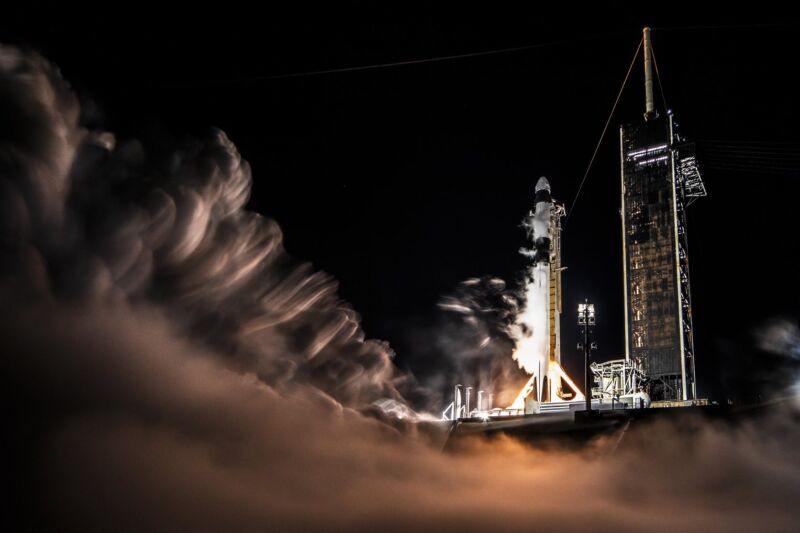
SpaceX
Welcome to Edition 6.33 of the Rocket Report! If you check the “next three launches” list below you’ll see that all three are for Falcon 9 rockets. That’s not the first time this has happened this year, nor will it likely be the last. It’s starting to look like SpaceX might actually come close to its target of 150 launches this year—a remarkable cadence.
As always, we welcome reader submissions, and if you don’t want to miss an issue, please subscribe using the box below (the form will not appear on AMP-enabled versions of the site). Each report will include information on small-, medium-, and heavy-lift rockets, as well as a quick look ahead at the next three launches on the calendar.

India building a second spaceport. The Indian Space Research Organisation, ISRO, has received the go-ahead to construct a new spaceport in Tamil Nadu, with which it aims to help private players launch small rockets, Tech Crunch reports. On Wednesday, Prime Minister Narendra Modi laid the foundation stone for the spaceport, located on an island named Kulasekharapatnam off the southern state of Tamil Nadu. This will be the country’s second spaceport after the space agency’s existing Satish Dhawan Space Centre.
Easier path to the poles … The spaceport will be dedicated to launching smaller launch vehicles and will be ready in about two years. Spread over 2,350 acres, the Kulasekharapatnam spaceport will help save propellant for small rocket launches as the port can launch rockets directly south over the Indian Ocean without requiring crossing landmasses. This is unlike the existing launch site at the Satish Dhawan Space Centre, which adds more fuel requirement for launching into a polar orbit as rockets need to follow a curved path to the south to avoid Sri Lanka’s landmass. (submitted by Joey S-IVB)
Astra founders warn of “imminent bankruptcy.” The founders of satellite propulsion and launch vehicle company Astra have sharply cut their offer to take the company private, warning of “imminent bankruptcy” if the company doesn’t accept their new proposal, Space News reports. In a US Securities and Exchange Commission filing on Tuesday, Astra released a letter sent three days earlier to a special committee of the company’s board of directors from Chris Kemp and Adam London, the chief executive and chief technology officer, slashing by two-thirds their offer to buy outstanding shares of the publicly traded company.
Pray I don’t alter it further … In November, Kemp and London proposed to buy Astra shares at $1.50, approximately double their price at the time they announced the deal. In the new proposal, they are offering only $0.50 per share. Kemp and London cited several reasons for cutting the share price. They included continued cash burn by the company since they tendered the original offer and higher “non-operating expenses” as the company used multiple third-party advisers to assess options. Under the revised proposal, Kemp and London said they anticipated raising $45 million overall to take Astra private, of which $7.7 million would go to shareholders. (submitted by Ken the Bin)
RFA reveals plans for SaxaVord spaceport. An environmental report published by the UK Civil Aviation Authority has provided greater insight into Rocket Factory Augsburg’s proposed operations at SaxaVord Spaceport in Scotland, European Spaceflight reports. The report details a plan for RFA to conduct up to 10 launches per year from SaxaVord, which would account for one-third of the spaceport’s total budget of 30 orbital launches per year.
More engines, please … Because of the local bird population, RFA will be unable to conduct launches or static fire tests between mid-May and the end of June. The company will also be limited to a maximum of two launches per month. The rocket’s design is also changing. Significantly, the 21-meter first stage will now be equipped with 13 Helix engines producing 1,300 kilonewtons of thrust instead of just nine engines, as previously stated by the company. (submitted by Ken the Bin)

